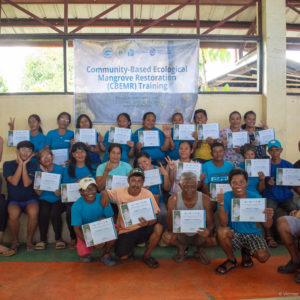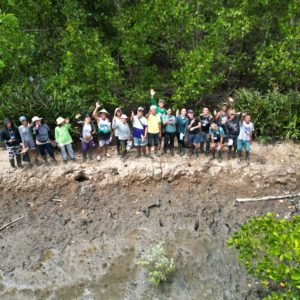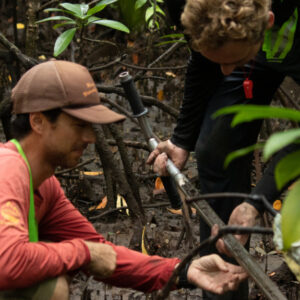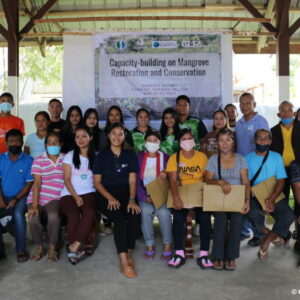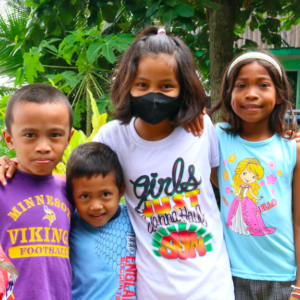Our Blue Carbon Program focuses on the restoration and protection of blue carbon habitats such as seagrass and mangrove habitats. The 2nd phase of this program is to conduct trainings for our partner communities to equip them with the knowledge and skills for mangrove restoration and monitoring. With this, our team recently partnered with the...
Author: Angela Mariz Obsina (Angela Mariz Obsina)
Mangrove Restoration: A Community Effort in Kabasalan
Mangrove forests act as nature’s guardians, filtering water, providing vital habitat for marine life and livelihood for local coastal communities, and even protecting shorelines from erosion and storms. Unfortunately, these vital ecosystems have faced threats such as coastal development, cutting, and conversion to aquaculture ponds. This is where our Blue Carbon Program steps in. Focused...
Blue Carbon Ecosystems:Climatological and Socio-economic Impacts of Mangrove Restoration in Cagwait, Surigao del Sur, Philippines
Mangroves for climate mitigation Mangroves are part of the blue carbon ecosystems (BCE). These are highly productive coastal ecosystems that can store large amounts of carbon in the atmosphere. In this case, mangroves store and sequester substantial amounts of carbon in their aboveground biomass (bark, leaves, branches) and belowground biomass (soil sediment) accumulated. Certainly, mangrove blue carbon ecosystems...
Capacity-Building Training on Mangrove Rehabilitation, Restoration, and Conservation in Cagwait, Surigao del Sur
Mangroves in the Philippines We have the common knowledge that whenever we encounter a plant or tree species, we always end up with one conclusion. They absorb carbon dioxide and give off oxygen. Conversely, they are called autotrophs. They are organisms that can make their food. And in the process, they support humans and other living things...
Blue Carbon Project: A one-day training on the Propagation of Sonneratia alba seedlings for the community in Salay, Misamis Oriental
Our Mission As part of our blue carbon project, Oceanus Conservation aims to contribute to the conservation, education, and overall community development of Filipinos. We are organizing training for our partner communities to provide ecosystem services. This would pertain to food security in the years to come and create a sustainable and lasting impact. Knowledge...
